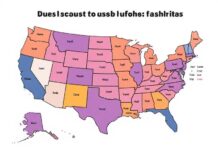Is Cancer a Fungus: Fungal cause of cancer
No, cancer is not a fungus. Cancer is a group of diseases characterized by the uncontrolled growth and spread of abnormal cells in the body. These abnormal cells can form tumors and interfere with the normal functioning of organs and tissues. Read about Do Takis Cause Cancer
Fungi, on the other hand, are a separate kingdom of microorganisms that include mushrooms, yeasts, and molds. They are distinct from human cells and function differently. While some fungal infections can cause health problems, they are fundamentally different from cancer in terms of their biology, causes, and treatment. Discover about Foul Smelling Urine Cancer
The Cancer fungus theory has been a topic of considerable debate and misinformation. The idea that cancer is a fungus or that fungal infections can cause cancer has been propagated by various sources, despite being widely debunked by scientific research. This article aims to provide a comprehensive understanding of the cancer and fungi relationship, debunk the myths, and present the scientific evidence surrounding this topic.
Understanding Cancer and Fungi
What is Cancer?
Cancer is a group of diseases characterized by the uncontrolled growth and spread of abnormal cells in the body. These abnormal cells can form tumors, interfere with the normal functioning of organs and tissues, and can metastasize to other parts of the body if not treated effectively. The causes of cancer are multifaceted and include genetic mutations, environmental factors, and lifestyle choices.
What are Fungi? Is Cancer a Fungus
Fungi constitute a separate kingdom of organisms that include mushrooms, molds, and yeasts. They play a crucial role in decomposition and nutrient cycling in ecosystems. While fungi can cause infections in humans, such as Candida albicans infections, they are fundamentally different from cancer cells in their biology and behavior.
The Myth: Cancer as a Fungus
Origins of the Cancer Fungus Theory
The notion that cancer is a fungus gained traction largely due to the claims of an Italian physician, Dr. Tullio Simoncini. He proposed that cancer is caused by fungal infections, specifically Candida, and suggested treating cancer with sodium bicarbonate. Despite being discredited by the medical community, his theory garnered attention through various media and alternative medicine circles.
Examining the Claims

Claim 1: Candida albicans Causes Cancer
Proponents of the Cancer fungal connection argue that Candida albicans, a common yeast found in the human body, is responsible for cancer development. However, scientific evidence does not support this claim. While Candida can be present in cancer patients, it does not establish a causal relationship.
Claim 2: Antifungal Treatments Can Cure Cancer
Advocates of the Fungal cancer treatment theory suggest that antifungal medications can eliminate cancerous growths. This claim is unfounded as cancer treatment requires targeting genetic mutations and cellular abnormalities specific to cancer cells, not fungi.
The Reality: Cancer as a Cellular Disorder
Scientific Consensus: Is Cancer a Fungus
Extensive scientific research has established that cancer is a result of genetic mutations and abnormalities within human cells. These mutations lead to uncontrolled cell growth and the formation of tumors. The Fungal cancer hypothesis lacks credible evidence and is not supported by mainstream oncology.
Genetic Markers and Cancer
Scientists have identified specific genetic markers associated with various types of cancer. These markers are crucial for diagnosing and treating cancer effectively, further disproving the idea of a Cancer fungal origin. The presence of genetic mutations, not fungal infections, is the hallmark of cancer.
Effectiveness of Antifungal Medications
While antifungal medications are effective in treating fungal infections, they have no proven efficacy against cancer. Established cancer treatments include surgery, chemotherapy, radiation therapy, and immunotherapy, all designed to target and eradicate cancerous cells.
Addressing the Misconceptions
The Candida Connection
It is important to clarify that the presence of Candida albicans in cancer patients does not indicate a causal relationship. Candida is a common organism found in many healthy individuals, and its presence alone does not cause cancer. The Fungal cause of cancer theory is a misconception that lacks scientific validation.
The Placebo Effect
Some individuals who report success with antifungal treatments for cancer may experience a placebo effect. This psychological phenomenon can lead to perceived improvements in symptoms, but it does not constitute scientific evidence of the treatment’s efficacy.
Exploring the Relationship Between Cancer and Fungi
Fungal Infections in Cancer Patients
While fungi do not cause cancer, patients undergoing cancer treatments such as chemotherapy and radiation therapy may have weakened immune systems, making them more susceptible to fungal infections. These infections can complicate treatment and recovery, highlighting the need for vigilance and appropriate antifungal interventions in oncological care.
Research on Cancer and Fungi Relationship
Recent research has explored the presence of fungal cells and DNA in cancer tissue samples. A 2022 study found small amounts of fungal cells in various cancer tissues, prompting questions about the possible interactions between cancer and fungi. However, correlation does not equal causation, and further research is needed to understand these findings fully.
Mycological Insights in Oncology: Is Cancer a Fungus
The field of cancer and mycology is still emerging. Understanding how fungal infections might influence cancer progression or patient outcomes can lead to better management strategies. However, the Fungal cancer hypothesis remains unsupported by substantial evidence, and cancer’s primary causes are genetic and environmental.
Debunking Common Myths

Myth: Cancer is a Fungus
As established, cancer is not a fungus. The Cancer fungal origin theory is a myth that has been widely debunked by scientific research. Cancer is driven by genetic mutations and cellular abnormalities, not by fungal infections.
Myth: Fungi Cause Cancer
There is no credible evidence to support the claim that fungi cause cancer. While fungal infections can occur in immunocompromised individuals, they do not initiate the genetic changes that lead to cancer. The idea of Fungus causing cancer is a misconception.
Myth: Antifungal Therapy Can Cure Cancer
Antifungal therapy is effective against fungal infections but has no proven benefit in treating cancer. Established cancer treatments focus on targeting and eliminating cancerous cells through various medical interventions. The concept of Antifungal cancer therapy is not supported by clinical evidence.
Conclusion
In summary, the idea that cancer is a fungus or that fungal infections cause cancer is a myth that lacks scientific support. Cancer is a complex disease driven by genetic mutations within human cells. While fungi like Candida albicans may be present in cancer patients, they do not cause cancer. Antifungal medications are not a viable treatment for cancer, and established cancer treatments target the cellular abnormalities that lead to the disease.
FAQs
Can Candida albicans lead to cancer? No, Candida albicans is a common yeast found in many individuals, but it does not cause cancer on its own.
Are antifungal treatments effective against cancer? No, antifungal treatments have no proven efficacy against cancer. Cancer requires specialized treatments targeting abnormal cells.
Is there any truth to the Cancer fungal connection? No, scientific research overwhelmingly supports the view that cancer is a cellular disorder caused by genetic mutations.
Why do some people claim success with antifungal treatments for cancer? Some individuals may experience a placebo effect, but this does not constitute scientific evidence of antifungal treatments’ efficacy against cancer.
How can I learn more about cancer and its treatments? To learn more about cancer and its treatments, consult reputable medical sources and healthcare professionals for accurate information and guidance.
Further Research and Emerging Theories
The Role of the Microbiome
Recent studies have started to explore the role of the human microbiome, including fungi, in health and disease. While the Cancer and fungi relationship is still not well understood, researchers are investigating how the balance of microorganisms in our body might influence cancer risk and progression.
Potential Therapeutic Approaches
While antifungal medications are not effective against cancer, understanding the interactions between cancer cells and fungi could lead to novel therapeutic approaches. Future research might uncover ways to leverage this relationship for better cancer treatment outcomes.
Fungal Cancer Treatment and Future Directions
The idea of using antifungal agents in cancer treatment is not entirely without merit. For instance, some studies are exploring how certain antifungal drugs might enhance the efficacy of traditional cancer treatments. However, these approaches are in the experimental stage and require rigorous testing.
Conclusion: Navigating the Myths and Realities
The Cancer fungal hypothesis remains a topic of interest and debate. However, the overwhelming consensus in the scientific community is that cancer is not caused by fungi and cannot be treated effectively with antifungal medications alone. Understanding the genetic and environmental factors that contribute to cancer is crucial for developing effective treatments and improving patient outcomes.
By staying informed and relying on reputable sources, individuals can navigate the myths and misconceptions surrounding cancer and fungi, ensuring they receive accurate information and appropriate medical care.
References and Further Reading: Is Cancer a Fungus
To dive deeper into the topic, consider exploring the following resources:
- National Cancer Institute (NCI)
- American Cancer Society (ACS)
- Peer-reviewed journals such as “Cancer Research” and “Mycopathologia”
- Books on oncology and mycology
- Is Cancer a Fungus








